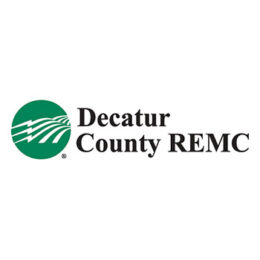by Rachel Sullivan

Decatur County REMC and other electric co-ops seek a common-sense replacement of the Clean Power Plan.
In October, the U.S. Environmental Protection Agency (EPA) announced plans to repeal the Clean Power Plan, a regulation that would have increased costs and impacted many electric cooperatives across the nation. Now the EPA, informed by public comment, must work to develop a common-sense replacement plan.
Decatur County REMC is glad to see the rule go. We’re working with the National Rural Electric Cooperative Association (NRECA), our national trade association, to encourage the EPA to replace the rule with a plan that focuses on individual power plants. We hope the agency will craft a replacement rule to address power plant emissions legally, provide co-ops with the certainty and flexibility they need to meet their members’ needs, and support co-ops in their mission to provide affordable and reliable electricity.
Electric co-ops depend on a diverse fuel mix to meet the energy needs of 42 million members across the nation, protect reliability of the energy system and ensure affordable power. The fact is that no two electric co-ops are exactly alike. The nation’s 900 electric co-ops rely on a diverse fuel mix to meet members’ energy needs, maintain reliability and ensure affordability. Each one makes strategic long-term investments in energy sources that make the most sense for them. Any new regulation needs to account for this reality.
This flexibility to pursue a diverse fuel mix allows co-ops to respond to local and regional factors and member preferences while ensuring affordable and reliable power. Past federal policy pushed cooperatives away from natural gas use for electricity to developing coal-based electric generation. In many cases, co-op members are still paying for those facilities — and the roughly $12 billion in pollution control measures that were added to them since the early 1990s.
But as it turns out, electric co-ops and other utilities are already making significant changes in how they generate power. Co-ops and their members value a healthy environment and vibrant rural communities. Market forces and members’ interests are driving co-ops to further diversify their electric generation portfolios. As a result, co-op-owned coal-fired generation has dropped 9 percent since 2014, and co-op solar capacity has increased five times in just the past two years, with help from our own solar array that was dedicated in October.
We live in a carbon constrained world and electric co-ops are reducing their carbon footprint. In fact, since 2005, co-ops have increased electric generation by 15 million megawatt-hours while reducing carbon dioxide emissions by nearly 10 percent.
Given the progress happening without the Clean Power Plan, you may ask why we want the EPA to go back to the drawing board to come up with a replacement rule. The main reason is certainty. A workable, common-sense rule that adheres to the law clarifies the rules of the road for co-ops, which will then be better able to make smart, long-term investments in electric generation. Regulatory certainty is an essential ingredient in ensuring a reliable supply of affordable power.
Decatur County REMC and co-ops across the country are looking forward to working with the EPA on a plan that gets it right this time around.
RACHEL SULLIVAN is the corporate relations manager at Decatur County REMC.



